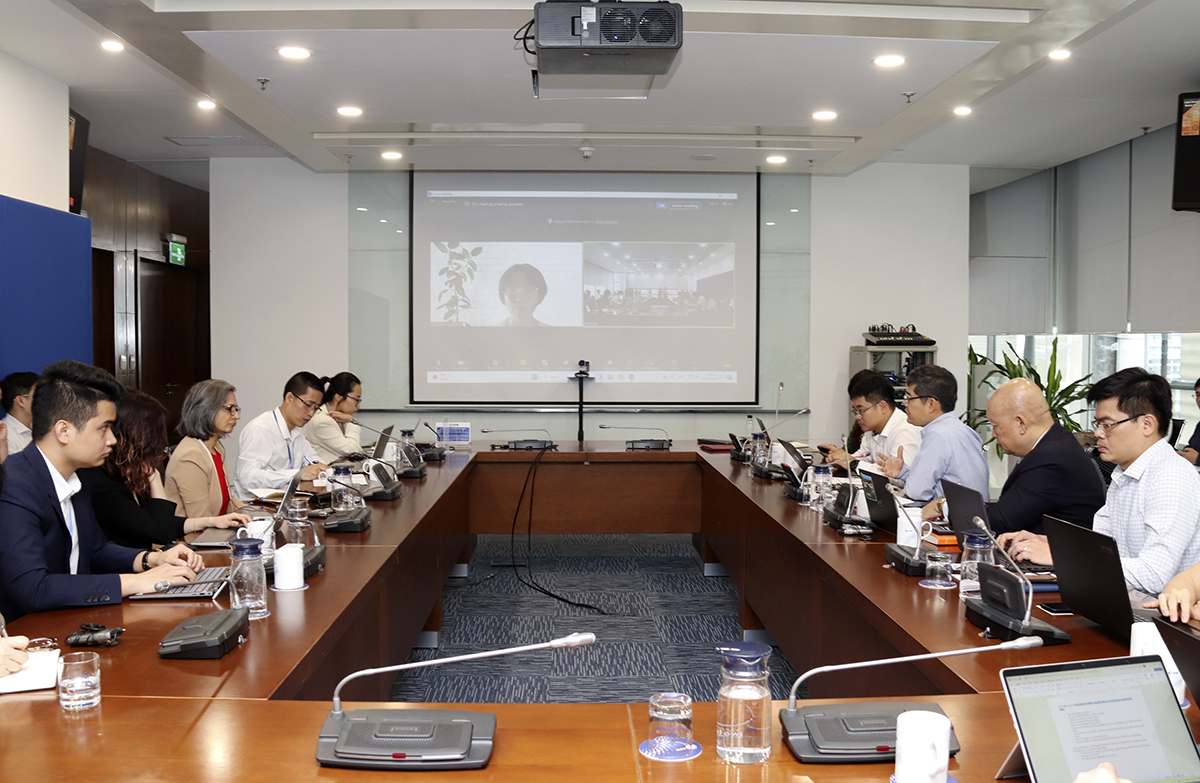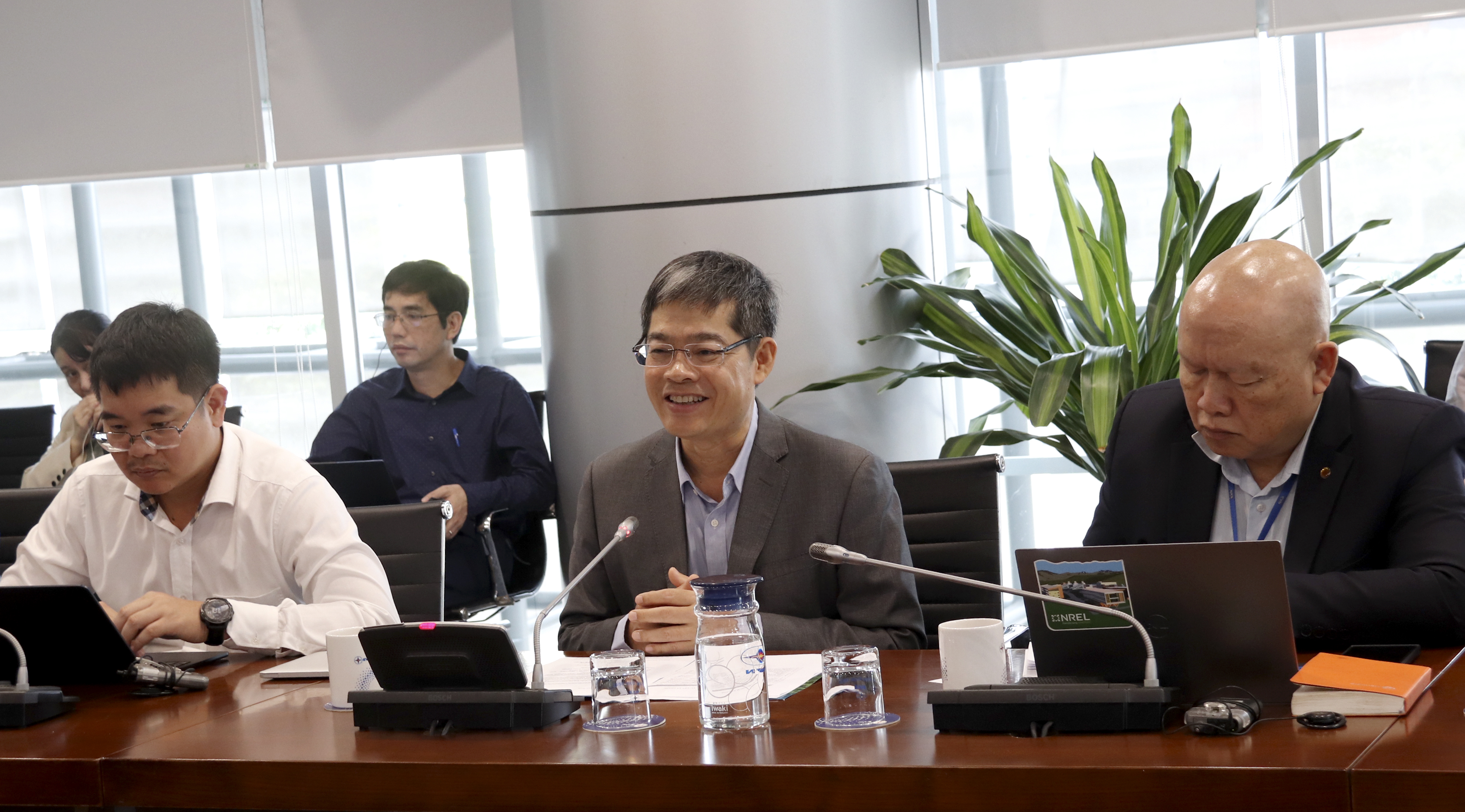EVN works with ADB on proposal draft for pilot battery energy storage system (BESS) project
10:15, 26/03/2024
On 26 March 2024, EVN’s Vice President Nguyen Tai Anh had a meeting with the Asian Development Bank (ADB) on a proposal draft for a pilot battery energy storage system (BESS) project providing auxiliary services in Vietnam.
Attending the meeting, were Ms. Hyunjung Lee - Senior Energy Economist at ADB; Ms. Sunita Dubey - National Project Manager in Vietnam, Global Energy Alliance for People and Planet; representative of the Institute of Energy and several experts from ADB, GEAPP, Rocky Mountain Institute (RMI) and Vietnam Energy Institute (IE).
On the Vietnam Electricity side, there was EVN’s Vice President Nguyen Tai Anh and representatives of EVN's specialized departments.

EVN discussing with ADB about proposal draft for pilot battery energy storage system (BESS) project
Sharing at the meeting, Ms. Hyunjung Lee - Senior Energy Economist at ADB said that the Vietnamese Government issued Decision No. 1009/QD-TTg dated 31 August 2023 allowing Vietnam Electricity (EVN) to invest in a pilot battery energy storage system (BESS) with a capacity of 50MW/50 MWh to research ancillary services and serve as a basis for developing price policies and technical standards.
The pilot BESS project is proposed to be installed at a substation in Northern Vietnam, providing ancillary services (peaking power and frequency control supply) in the context of the renewable energy (RE) proportion increasing rapidly and electricity shortage in the North. Accompanying benefits of the project include: limiting the reduction of renewable energy capacity, reducing power loss, and reducing investment pressure on the transmission power grid.
The BESS project was developed by the Asian Development Bank and the Rocky Mountain Institute, with support from the Global Energy Alliance for People and Planet and the Energy Institute. The pilot BESS project is expected to help reduce emissions by 23,717 tons of CO2 (throughout the entire project lifecycle).

EVN’s Vice Presiden Nguyen Tai Anh speaking at meeting session
Speaking at the meeting, EVN’s Vice President Nguyen Tai Anh assessed that BESS is a flexible solution and can be quickly deployed to store excess energy during periods of low load demand and release stored energy during periods of high load demand. This contributes to enhancing the flexibility of the power grid by helping to balance supply and demand, making it an ideal solution to overcome the variability of renewable energy sources.
evn.com.vn
Share